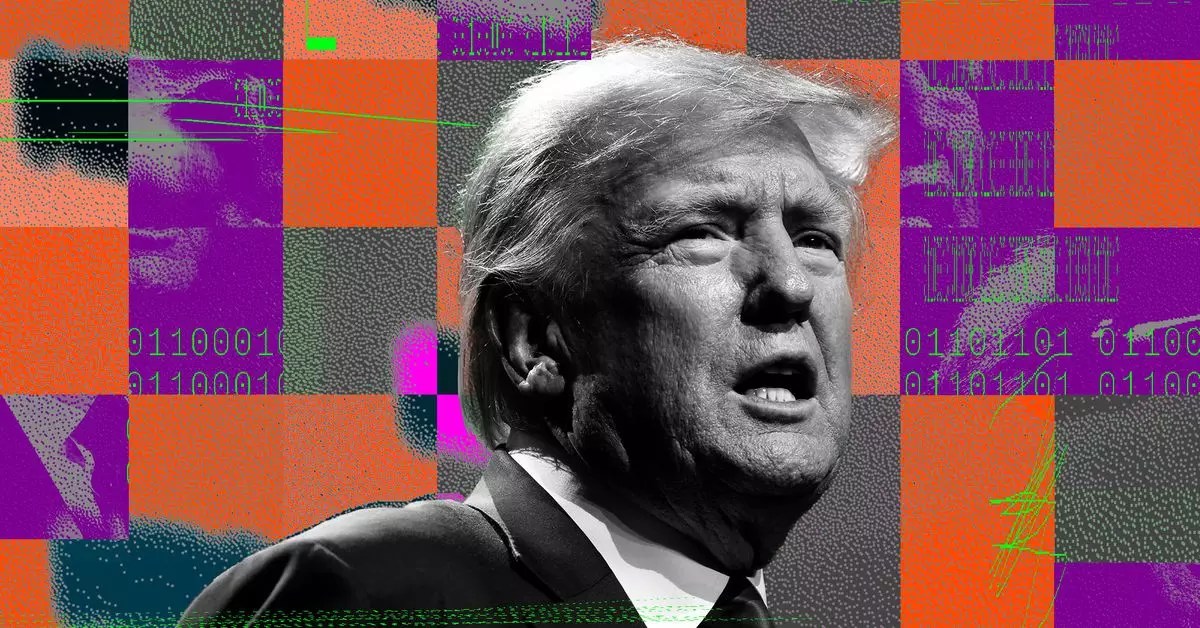In an unexpected twist in the debate over TikTok’s future in the United States, President-elect Donald Trump is seeking to leverage his upcoming administration to negotiate a resolution that could avert a ban on the popular social media app. Having established his political prowess through a fervent, and sometimes controversial, engagement with technology and social media, Trump’s latest move highlights the intersection of politics, technology, and public sentiment.
Recently, the Supreme Court agreed to hear a case concerning the legality of a congressional bill that sought to ban TikTok on national security grounds. This decision underscores the complexities surrounding technology and governance in an era where data privacy and security are paramount. The legislative bill grants the president considerable discretion to postpone enforcement while negotiations unfold. Trump’s plea invokes the idea that he possesses not just the mandate but the skills necessary to broker a deal that ensures TikTok’s operations remain intact, albeit potentially under new American ownership to placate national security fears.
The case before the Supreme Court revolves around the First Amendment implications of such a ban. The ramifications of curbing a platform that serves as a significant communication tool raise compelling questions about free speech and the limits of government intervention in digital spaces.
Despite these high-stakes negotiations, the details of Trump’s proposed deal remain notably vague. His intent hinges on persuading ByteDance, the Chinese parent company of TikTok, to divest a substantial stake to an American entity. Such actions would not only address the concerns about foreign surveillance and data access but might also bolster the perceived credibility of TikTok within American political discourse. However, without transparent communication about how this divestiture would operate or how it would adhere to existing regulations, skepticism regarding the feasibility of this proposal is warranted.
Moreover, Trump argues that his significant social media following—over 14 million TikTok followers coupled with his ownership of Truth Social—supplies him with a unique insight into the role of TikTok as an essential medium for public expression. This perspective reflects his broader philosophy regarding the impact of social media as a platform for political discourse, while simultaneously posing risks inherent in government manipulation of such platforms.
It is imperative to recognize that Trump’s shift in rhetoric regarding TikTok represents a significant pivot from his previous, more aggressive stance aimed at banning the app. This evolution reflects his adaptive strategy as he gears up for another presidential campaign and recognizes the potential of TikTok in mobilizing political sentiment among younger voters. Trump’s acknowledgment of the app’s role in his campaign could be interpreted as a strategic decision rather than a sudden appreciation for digital diversity.
Yet, the political climate surrounding TikTok remains fraught with tension. The bipartisan pressure to enforce a ban persists, with influential voices from both sides of the aisle advocating for stringent measures against the platform. Key figures like Senator Mitch McConnell and Representative Ro Khanna, along with former FCC Chairman Ajit Pai, represent a coalition formidable enough to prompt serious consideration of the consequences of Trump’s negotiations.
The debate surrounding TikTok is emblematic of larger societal discussions on surveillance, privacy, and free speech. The potential for government intervention to silence platforms could set a concerning precedent, as Trump himself highlighted in his reference to the recent ban of Elon Musk’s Twitter, now branded as X, in Brazil. Such actions embody the risks posed by governmental overreach into digital communication, presenting a serious concern for the principles of democracy.
The upcoming Supreme Court decision will not only shape the future of TikTok but may also define the parameters of technological governance and digital free speech in an increasingly polarized political environment.
As the January 19th deadline looms for Trump’s proposed deal negotiations, the stakes have never been higher. The intersection of technology, politics, and public expression continues to evolve, revealing underlying tensions that reflect broader societal questions. In an age where communication technology is vital for political engagement, navigating these waters will require finesse and insight from all stakeholders involved. Whether Trump’s negotiations will lead to a resolution or spark further conflict remains to be seen, but one thing is clear: the future of TikTok is emblematic of the challenges inherent in modern governance and free speech.


Leave a Reply